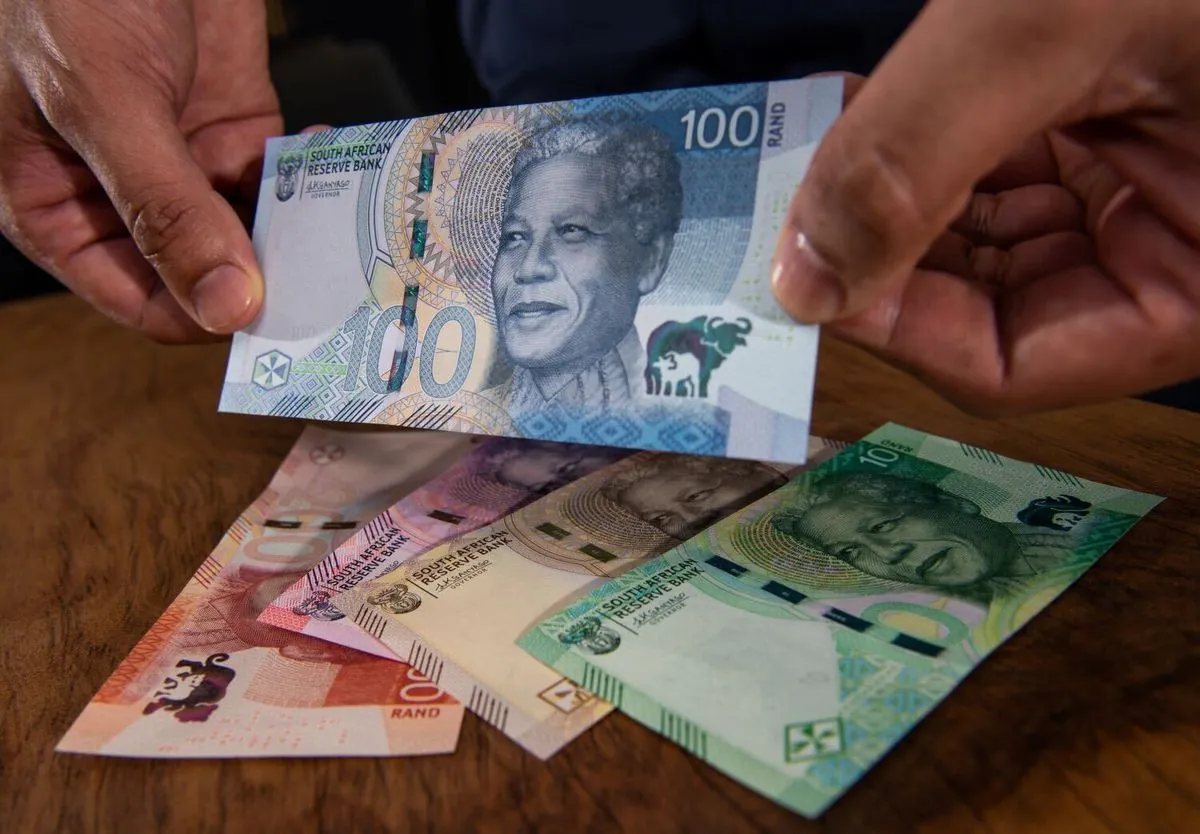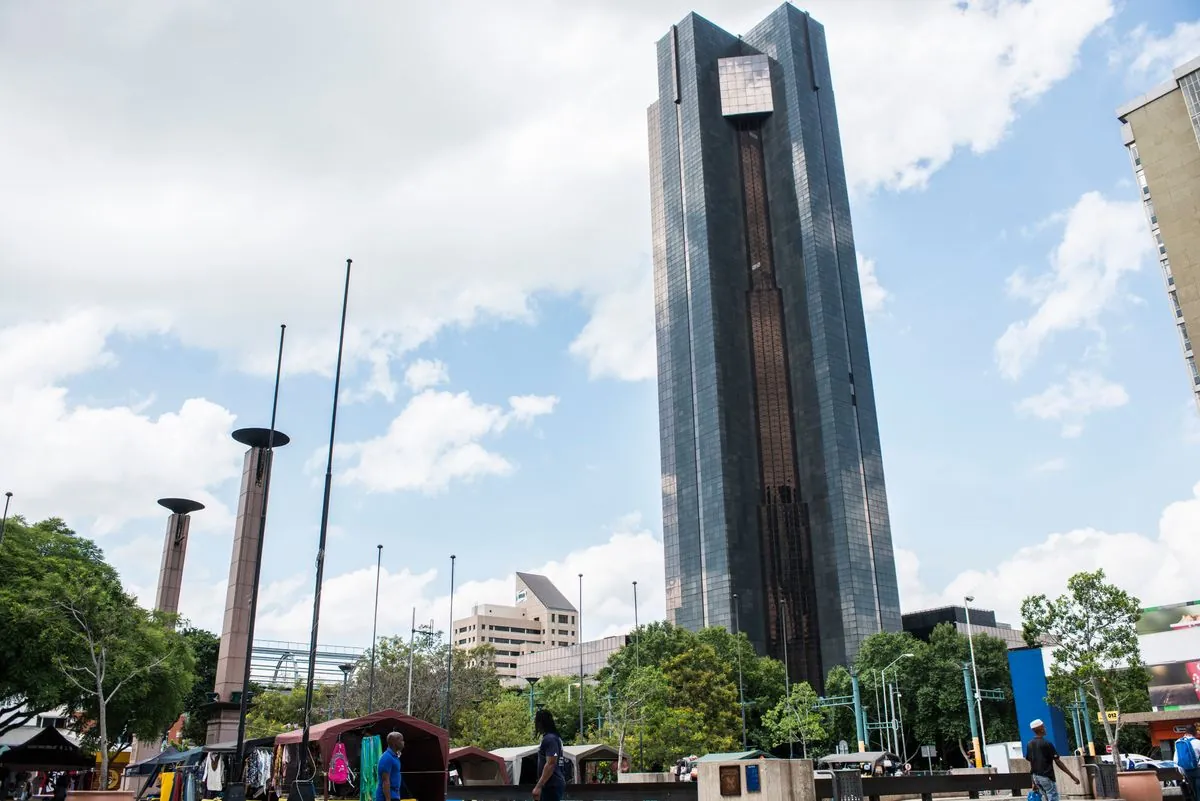South African Rand Dips as Markets Await Crucial Inflation Data
The South African rand weakened slightly as investors anticipate key inflation data. The release could influence future interest rate decisions, while global markets also eye Fed minutes for economic insights.

The South African rand experienced a minor decline in early trading on August 21, 2024, as financial markets braced for the release of important inflation data. This economic indicator could provide valuable insights into the future monetary policy direction of Africa's most industrialized economy.
As of 0642 GMT, the rand was trading at 17.83 against the US dollar, representing a modest 0.2% decrease from the previous day's closing value. This slight weakening reflects the cautious stance of investors ahead of two significant economic events: the local Consumer Price Index (CPI) release and the publication of the US Federal Reserve's meeting minutes.
The upcoming July 2024 inflation data, scheduled for release at 0800 GMT, is drawing considerable attention from market participants. This report is crucial as it may offer clues about the South African Reserve Bank's (SARB) future interest rate decisions. The SARB, established in 1921, is one of the world's oldest central banks and plays a pivotal role in shaping the country's monetary policy.

In June 2024, South Africa's inflation rate stood at 5.1% year-on-year, comfortably within the central bank's target range of 3% to 6%. This target range, introduced in 2000, aims to maintain price stability in the economy. The SARB typically prefers to see inflation close to 4.5%, the midpoint of its target range, to ensure balanced economic growth.
Economists surveyed by Reuters anticipate that the SARB might implement its first interest rate cut in over two years on September 19, 2024. This potential move comes as the country grapples with various economic challenges, including high unemployment rates and the lingering effects of the COVID-19 pandemic on its economy.
"Today is all about local CPI (inflation) later this morning and the Fed (U.S. Federal Reserve) minutes this evening. Ahead of CPI later this morning, we look for some consolidation after the big moves of late."
The global financial community is also keenly awaiting the release of the US Federal Reserve's latest meeting minutes. These documents could provide valuable insights into the potential interest rate trajectory of the world's largest economy, which often has ripple effects on emerging markets like South Africa.
In the bond market, South Africa's benchmark 2030 government bond showed a slight weakening in early trading, with the yield increasing by 1 basis point to 9.295%. This minor movement in the bond market underscores the interconnectedness of various financial instruments and their sensitivity to economic data releases.
As part of the BRICS group of emerging economies, South Africa's economic performance is closely monitored by international investors. The country boasts the largest stock exchange in Africa, the Johannesburg Stock Exchange (JSE), and has a sophisticated financial services sector. However, it also faces ongoing challenges, including issues with power supply that have impacted economic growth in recent years.
The performance of the rand, operating under a flexible exchange rate regime, is particularly important given South Africa's position as the continent's second-largest economy after Nigeria. As the nation continues to work on economic reforms to boost growth and attract investment, the upcoming inflation data and subsequent policy decisions will be crucial in shaping investor sentiment and economic prospects for the remainder of 2024 and beyond.


































